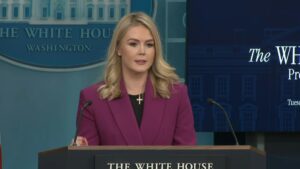Big Pharma Bemoans ‘Tragic Loss’ as Democrats Take Modest Action to Curb Drug Prices
Big Pharma, with its army of 1,500 registered lobbyists and endless well of resources, rarely ever loses on Capitol Hill.
So the powerful industry didn’t take it well when the U.S. Senate—a chamber awash with pharma cash—passed legislation Sunday that would require Medicare to negotiate the prices of a small number of prescription drugs. The bill, known as the Inflation Reduction Act, also proposes a $2,000 cap on Medicare Part D enrollees’ annual out-of-pocket drug spending.
Stephen Ubl, CEO of the Pharmaceutical Research and Manufacturers of America—the drug industry’s leading trade group—claimed late Sunday that the legislation represents a “tragic loss for patients,” decrying the bill’s highly modest price-negotiation requirements as an unconscionable government attempt to exert “more control over the healthcare of American patients.”
Ubl’s statement Sunday was in keeping with the pharmaceutical industry’s outraged response to the Inflation Reduction Act, legislation that drug companies have fought with torrents of lobbying money and ads packed with disinformation.
The industry’s fearmongering about the bill’s supposedly dire implications often verged on hysteria. The Biotechnology Innovation Organization, the world’s largest biotech lobbying group, declared last month that the legislation’s passage would hurl the U.S. “back into the dark ages of biomedical research.”
For patient advocates, the pharmaceutical industry’s aggressive efforts to tank the reconciliation represent a signal that it’s worth fighting for, even if it doesn’t go nearly as far as progressive lawmakers and grassroots campaigners had hoped.
The bill was further weakened just a day ahead of the Senate vote when Republicans—enabled by the upper chamber’s unelected parliamentarian—forced the removal of a provision that would have instituted a $35-per-month insulin copay cap for patients with private insurance.
The parliamentarian also deemed out of bounds a proposal aimed at requiring pharmaceutical companies that raised drug prices at a faster rate than inflation to pay out rebates to the privately insured.
Despite those negative last-minute changes, campaigners applauded the Senate Democratic caucus for approving the bill.
The House may to take up and pass the bill later this week, clearing the way for Medicare to directly negotiate the prices of a subset of expensive medicines directly with pharmaceutical corporations—a reform that the drug industry has been fighting off for decades.
This year alone, drug companies have raised prices more than 1,180 times, a striking display of the industry’s unchecked power to set prices as it pleases while patients struggle to afford lifesaving treatments.
Originally published at Commondreams.org.












